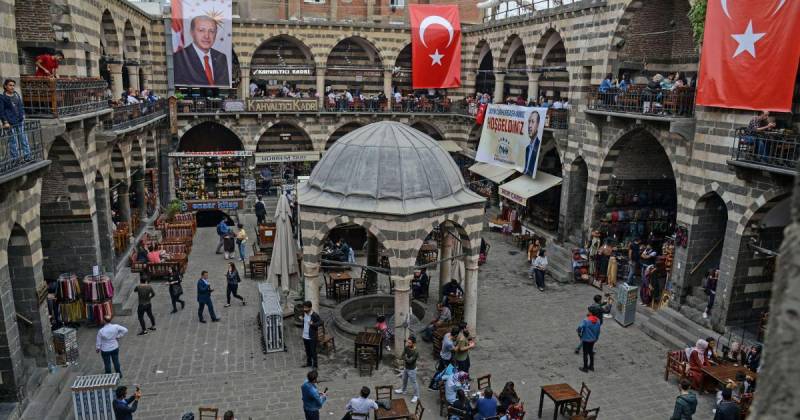Diyarbakır, the biggest city in Turkey’s mainly Kurdish southeast, is going through tough times.
The city has not recovered from military operations against Kurdish militants between December 2015 and March 2016. Half of the old town of Sur was totally destroyed. The official curfew continues in six destroyed districts of Sur. As no one lives in these destroyed areas anymore, it is more like a ban on people entering those areas.
Gültan Kışanak, elected mayor of the city in 2014, has been imprisoned since September 2016. Those elected mayors of the city’s districts have also been similarly jailed. The city and its districts are instead governed by unelected administrators appointed by the central government.
Hundreds of municipality workers were fired from their jobs by the administrators, while hundreds of teachers, doctors and other state employees were sacked by government decrees accused links with terrorist groups. Thousands of people – politicians, activists, journalists and students – were imprisoned. Most civil society organisations were closed by decree.
Nearly three years have passed since the violence in the streets, and the damage lingers. Intellectuals, writers and many highly educated people have left the city for the west of the country, or left Turkey altogether. Many factories and businesses were closed. Unemployment rates have rapidly increased.
The Kurdish movement, and the few NGOs which have not yet been closed, sometimes organise meetings, but attendance is low. Most people have lost faith in politics. The main pro-Kurdish opposition party, the Peoples’ Democratic Party (HDP), still lingers, but is under a great deal of pressure and has not been able to respond to the needs of its supporters.
Members of the party are detained every day and it is experiencing a big leadership problem. Many qualified people stay away from the party as they have lost their trust in politics.
Every day there is bad news – detentions, arrests and torture. We try to live with the news while we wait for our turn.
All the while, I ask myself, why am I still living in this city?
I have asked myself this question a million times and the answer is simple: I am recording history. Someone needs to be a witness. I am in love with my land, Kurdistan, and with my people. I admire the struggle of my people. After a while, I started wondering why everyone else is staying.
Mehmet, a young journalist working for Kurdish media, answered: “This is my city. Here I feel more secure. I went to university in Ankara and I always faced discrimination and was humiliated because of my mother tongue, Kurdish. Here, life is hard, but in the west of Turkey, life is harder for a Kurd”.
Fatma, a mother whose daughter was killed during the military operations said this was her land and she would not allow the state to take it from her. Ayşe, another woman from Sur told me she did not have enough money to move, but if she had the money, she would prefer to live in the west of Turkey.
Orhan, a Kurdish businessman told me he wanted his children to grow up knowing their culture and language. But he said it was hard to develop his business here because of the ongoing conflict. He does not know what the future will bring.
Aylin, an artist, said her art was inspired by these lands and its culture. But, she said, people did not give importance to art in Kurdistan, so she said she might move away in the future. Berivan said her dream had been to live in a small town near the beach in the west of Turkey, but she said she had experienced so much hate, discrimination and racism for being Kurdish, she had given up on her dreams. She is afraid of living in Turkish cities.
Berivan said: “I miss a normal life. A life that you don’t need to worry about tomorrow, you don’t need to worry if you will be in prison or not”. A young man, Azad, said life was meaningful here, but he was tired of living under war conditions.
The people of Diyarbakır still resist. Most of them still do not plan to migrate, but they are tired and miss a normal life.
